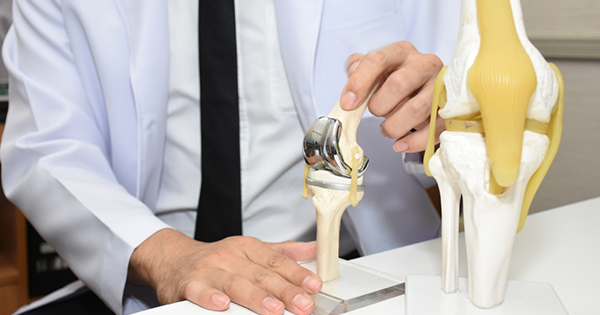With the winters right around the corners, Best orthopedician in Vizag usually report that patients with recently replaced joints might be feeling a little anxious on how their new joint would react to the drop in temperatures. It is a known fact that immaterial of the weather, patients take certain amount of time to get used to their artificial joints and to feel like they are a normal part of their life. But what makes this process a little tricky is the winter.
How can winters affect replaced joints ?
Winter can significantly impact individuals with replaced joints, affecting both physical comfort and mobility. The cold weather often leads to a tightening of muscles and tendons, which can exacerbate stiffness and pain around prosthetic joints. Reduced temperatures may also increase the risk of swelling and inflammation in the surrounding tissues, making movement more challenging. Additionally, the drop in barometric pressure associated with winter weather can heighten discomfort for those with joint replacements, as some studies suggest that it may directly influence joint pain levels. It's not uncommon for those with joint replacements to feel heightened sensitivity in joints, leading to a perception of increased pain per orthopedic doctor in Vizag.
How to care for your joints in winter?
- Stay Warm: Keep joints warm during colder months by wearing layered clothing and using heating pads to alleviate stiffness.
- Moisturize: Apply lotion to dry skin, as winter air can exacerbate dryness and irritation around joint areas.
- Exercise: Engage in light, low-impact exercises like walking or swimming to maintain flexibility and strength without straining the joint.
- Hydration: Drink plenty of water to keep your body hydrated; dry winter air can lead to dehydration, which may affect joint health.
- Maintain Weight: Monitor your weight to avoid additional stress on replaced joints, ensuring optimal mobility.
- Use Supportive Gear: Consider wearing braces or supports if advised by a healthcare professional to provide extra stability while engaging in winter activities.
- Talk to a Doctor: Consult with your orthopedic specialist for personalized tips and interventions for joint care during winter.
Things that you should not do in the winter:
- Avoid Extreme Cold Exposure: Do not expose replaced joints to extreme cold without proper protection, as it can lead to stiffness and discomfort.
- Don’t Skip Proper Warm-Up: Don't neglect warming up before engaging in physical activities; this is crucial to avoid strain on replaced joints.
- Don’t Ignore Footwear: Avoid wearing inappropriate or unsupportive footwear; inadequate shoes can lead to slips and places extra strain on joints.
- Don’t Overdo Activities: Don’t push yourself with strenuous tasks; be cautious of overexertion, which can jeopardize joint integrity.
- Do not Forget Rehabilitation Exercises: Do not skip prescribed rehabilitation exercises at best orthopedic hospital in Vizag or stretches, as they are vital for maintaining range of motion.
All things said, getting help from one of the leading Orthopedic Surgeon can help you overcome your fears of joint care during the winters. But one thing that most of the orthopedic hospital suggest is that postponing your joint replacement in view of the upcoming weather seasons can do more harm than good. There are always ways to mitigate the risks and to help aid a complete balanced and natural recovery at any given time of the year. Nutritious diet, stress free life and recommended exercises are your go to tips for quick recovery and rehabilitation from joint replacement surgery. So, if you or someone you know is suffering from unprecedented joint pains which have not subsided with medications or physical therapy or PRP treatment for knee, it is time to consult best orthopedic doctor.
Navigation
- Preventing Workplace Injuries
- Winter and Joint Replacement Care
- Common reasons for visiting an Orthopedic doctor
- Bones, Joints & Pains
- Osteoporosis & its effects
- Sports Injury Depression - How to find the best sports medicine specialist
- Arthroscopy – one good approach with benefits
- Common sports injuries and precautions
- Living with Hip Pain? Hip pain causes and precautions
- Arthroscopy surgery and its recovery
- Knee arthroscopy procedures & when do you need arthroscopy
- Partial Vs Total Joint Replacement What is The Difference?
- Stem Cell and PRP Therapy Advantages for Arthritis problems
- Sports injuries and Orthopedic Care: Getting Back in the Game
- Common Ankle Conditions and how Arthroscopy is useful
